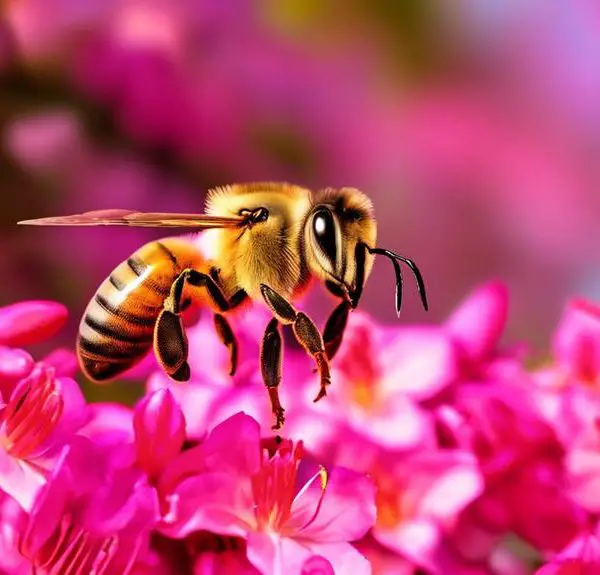Wondering if honey is safe for your baby? Uncover surprising facts about this sweet ingredient and its effects on your infant's health.
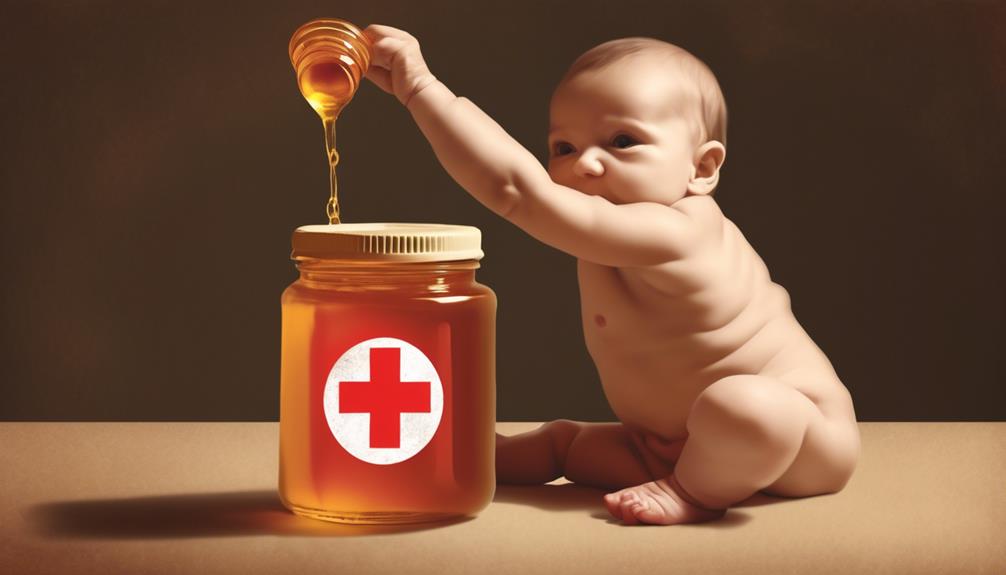
Are Babies Allowed Honey
You're feeding your baby, you're nurturing your baby, you're making every effort to ensure their well-being. In your quest to provide the best for your little one, you might wonder about the suitability of various foods.
One such food that often brings about concern is honey. A natural sweetener, honey seems like a harmless and healthy option, but is it safe for your baby's delicate system?
Just when you thought you'd understood the dos and don'ts of feeding your infant, you're about to discover a surprising fact about this commonly-used ingredient.
Key Takeaways
- Infants should not be given honey before the age of one due to the risk of botulism from Clostridium botulinum spores.
- Consulting a pediatrician before introducing new foods to infants is recommended, including honey.
- Safe and nutritious alternatives to honey for babies include pureed fruits like apples, pears, and bananas.
- When introducing honey to a child's diet after one year, it should be done gradually in small amounts and with caution for signs of allergies.
Understanding Infant Digestive Systems
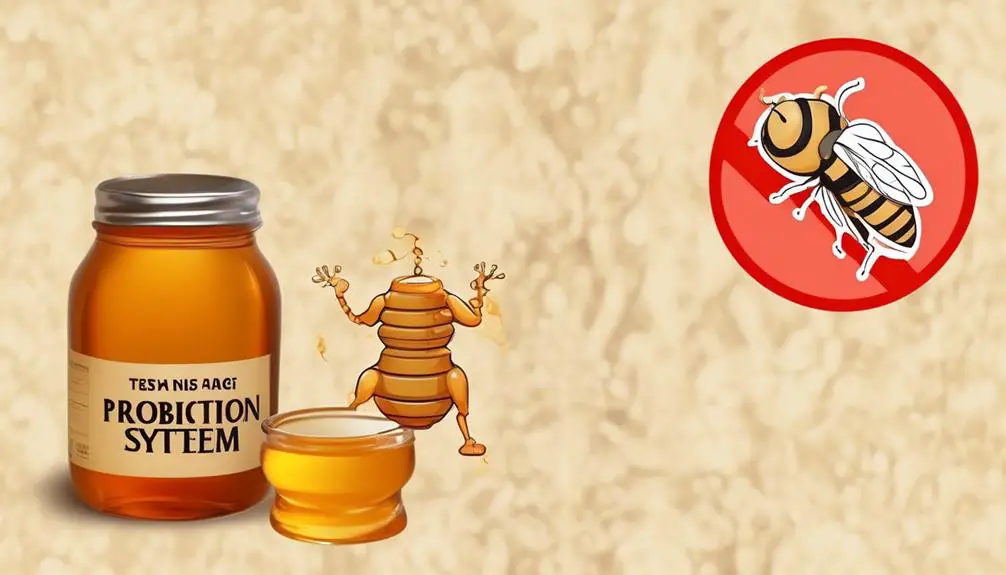
To fully grasp why honey isn't suitable for infants, you first need to understand the unique complexities of their developing digestive systems. Unlike adults, infants' digestive systems are immature and still evolving. This means they lack the necessary defenses to combat certain harmful organisms that may be present in foods, like honey.
Honey, though naturally sweet and beneficial for older children and adults, can contain spores of a bacterium called Clostridium botulinum. While your mature digestive system can easily handle these spores, an infant's can't. The spores can grow and produce toxins in their intestines, leading to a rare but serious illness called infant botulism.
Moreover, infants don't produce significant amounts of stomach acid. This acid, present in adults, helps kill harmful bacteria. But for babies, this lack makes them more susceptible to infection. It's this delicate balance of an infant's digestive system, its immaturity and vulnerability, that makes honey a potential risk. So, while honey may be a natural product with several health benefits for you, it's not safe for your little ones under the age of one.
The Dangers of Botulism in Infants
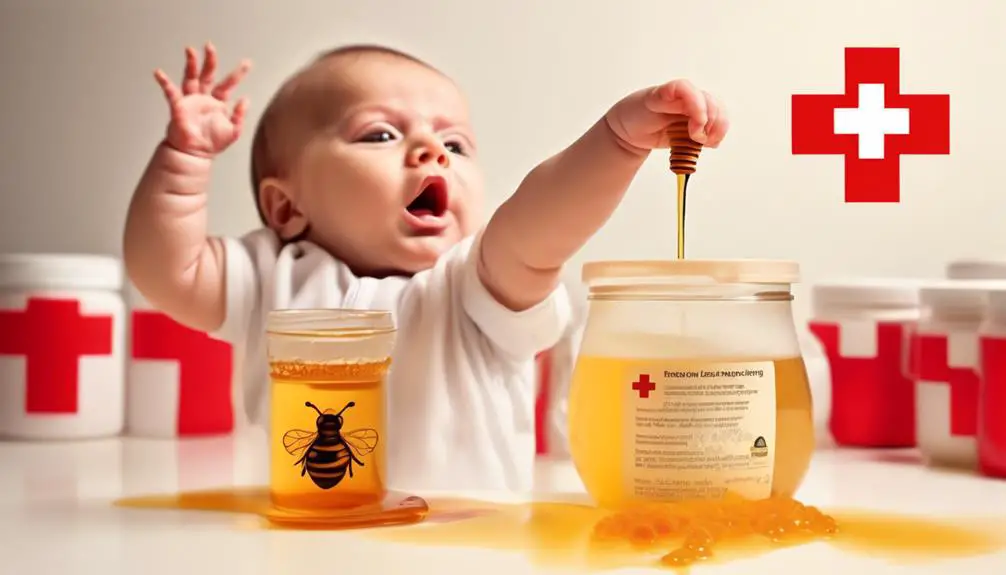
Understanding the risks associated with botulism in infants is crucial, especially since their vulnerable digestive systems can't handle the Clostridium botulinum spores found in honey. When infants ingest these spores, they can multiply in their intestines, producing a potent neurotoxin that leads to infant botulism. This condition is rare but serious and requires immediate medical attention.
Symptoms of Botulism | Treatment | Prevention |
|---|---|---|
Constipation, weak cry, difficulty feeding | Hospitalization, breathing support, antitoxin | Avoid honey in infants under 1 year, proper food preparation |
The symptoms can start with constipation and progress to muscle weakness, difficulty feeding, and a weak cry. If you notice these symptoms, it's imperative to seek medical help immediately.
Treatment usually involves hospitalization, where your baby might need breathing support. Doctors may also administer an antitoxin to counteract the botulinum toxin.
Prevention is the best defense. The primary way to prevent botulism is to avoid giving honey or any food containing honey to children under 1 year. Proper food preparation and storage can also help minimize the risk of botulism. Always prioritize your infant's health and well-being. Stay informed and take necessary precautions.
Medical Recommendations Regarding Honey
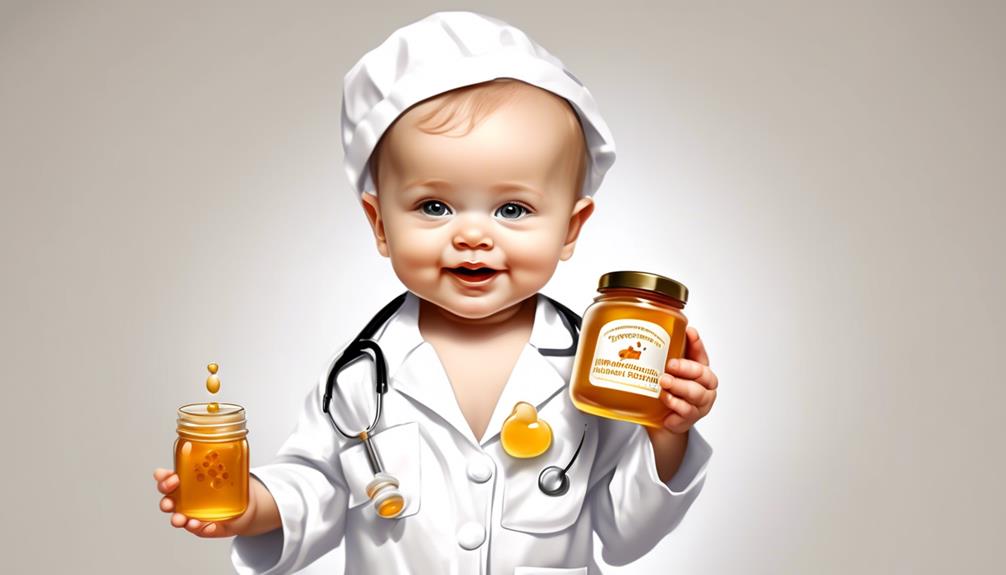
Let's delve into the medical recommendations regarding honey consumption in infants, a topic of paramount importance for ensuring their health and safety. Experts, including the American Academy of Pediatrics and the World Health Organization, strongly advise against giving honey to babies under one year of age. This recommendation is based on the risk of infant botulism, a rare but serious illness caused by toxins from a bacterium found in honey.
You might wonder, if honey is a natural product, why is it harmful to infants? It's because their immature digestive system isn't equipped to neutralize the botulism spores. Once ingested, these spores can produce toxins leading to severe health complications, including muscle weakness and breathing problems.
After your baby turns one, their digestive system becomes more mature and capable of handling the spores. At this point, honey isn't only safe but also beneficial due to its antioxidant and antibacterial properties. However, it's essential to always consult your pediatrician before introducing new foods to your baby's diet.
In a nutshell, while honey is a nutritious food for older children and adults, it's a no-go for infants under one year – the risks simply outweigh the benefits.
Alternatives to Honey for Babies
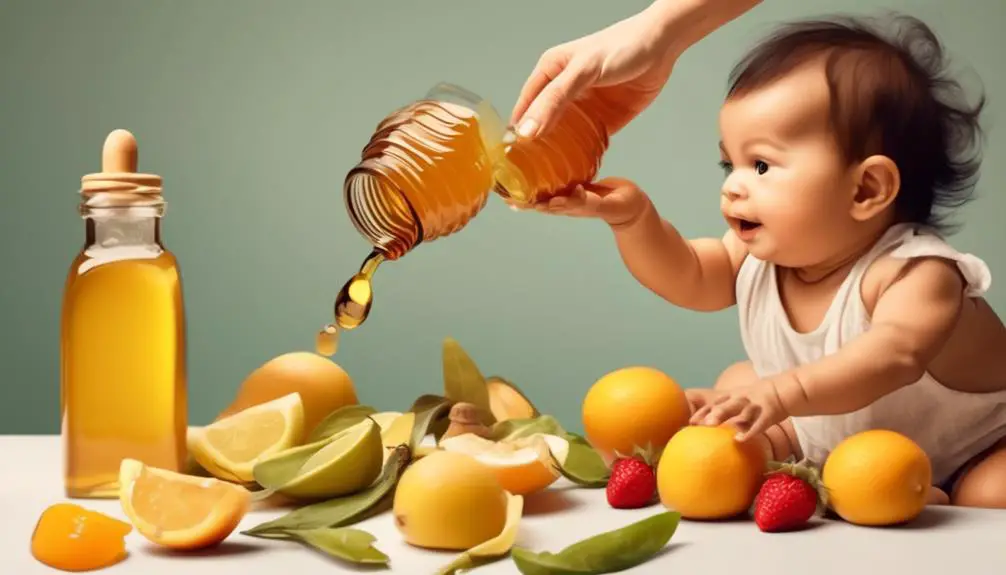
While you shouldn't give honey to babies under one year old, there are numerous safe and nutritious alternatives to consider. Opting for these options can provide the sweet taste that babies may enjoy, without the risk of botulism that honey presents.
One popular alternative is pureed fruits. They're naturally sweet, packed with vitamins, and easy for babies to digest. Apples, pears, and bananas are top choices. You can also use them as a topping on cereals or mix them into yogurt.
Another option is to use a small amount of unsweetened applesauce. It's a good source of fiber and vitamin C, and it's mild enough for a baby's developing taste buds. Be sure to choose a brand that doesn't add sugar or other sweeteners.
If you're looking for an alternative to sweeten homemade baby food, consider using breast milk or formula. They're naturally sweet, and they provide essential nutrients that babies need.
Safe Introduction of Honey in Diet
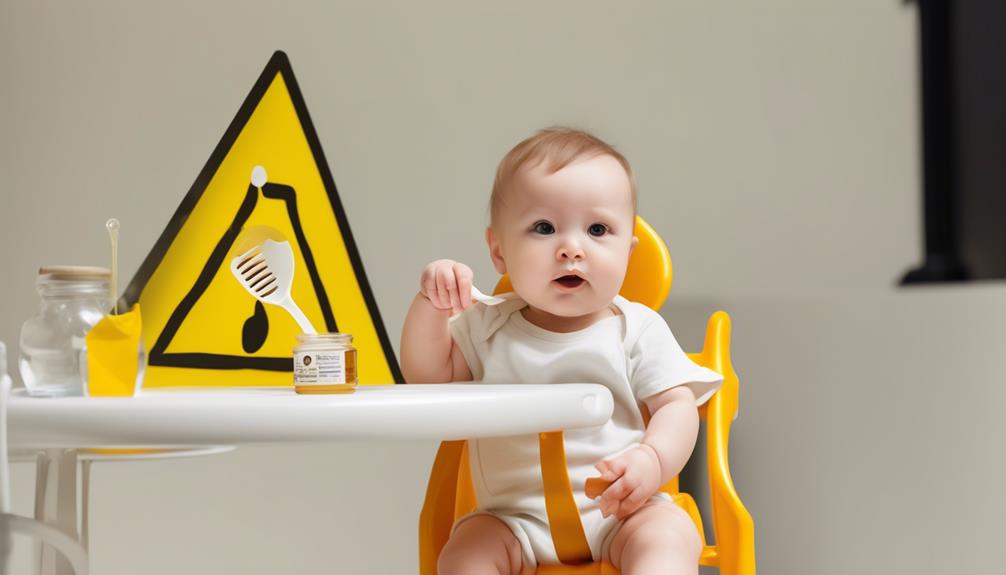
Once your baby crosses the one-year landmark, you can safely introduce honey into their diet, adding a natural sweetener to their meals. It's crucial, however, to ensure this introduction is gradual and monitored to observe any adverse reactions.
Start small. You might consider stirring a teaspoon of honey into your baby's breakfast cereal or yogurt, or drizzling it over a piece of toast. Watch for signs of allergies like wheezing, coughing, or skin rash. If you observe any of these, discontinue the use of honey immediately and consult your pediatrician.
Remember, honey is high in sugars, so moderation is key. It shouldn't replace nutritious foods in your baby's diet, but can be used sparingly to add flavor to their meals. As your baby's palate matures, honey can enhance the taste of various foods in a healthy way.
Furthermore, always use pasteurized honey. Raw honey, while natural, might contain harmful bacteria that your baby's immune system isn't ready for. While honey can be a beneficial addition to your child's diet after the age of one, it's important to introduce it safely and responsibly.
Conclusion
In conclusion, you shouldn't give honey to babies under one year due to the risk of botulism. Their digestive systems can't handle it. Doctors strongly advise against it.
Instead, consider safer alternatives like fruit purees or infant-safe sweeteners. Once they cross the one-year mark, you can gradually introduce honey in their diet.
Always remember, your baby's health and safety come first.

